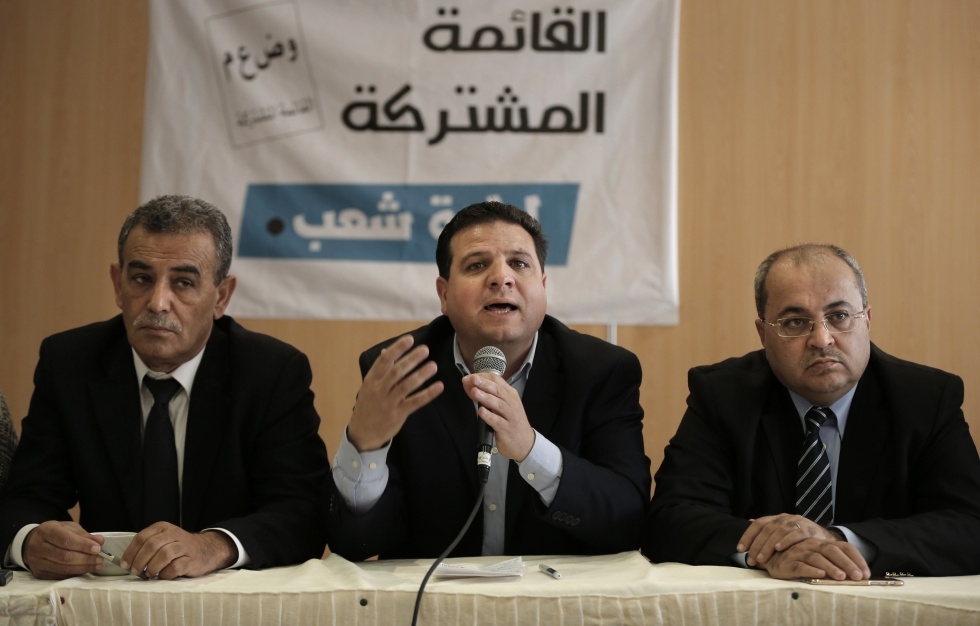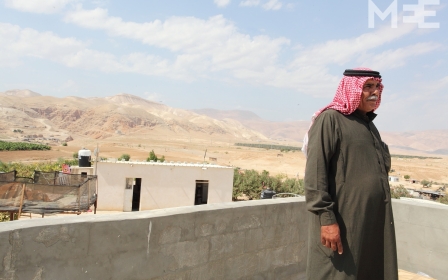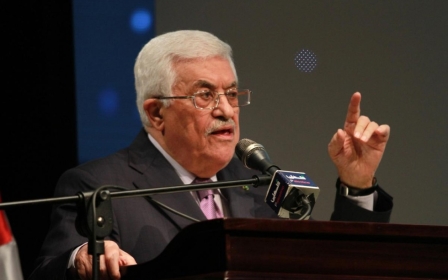Palestinian voters in Israel: People's will vs people's need for hope

“People's will” is the slogan chosen by the Joint List for the 20th Israeli parliament - the Knesset - elections. The list assembles communists (Jabha), Islamists (Islamic movement) and democratic nationalists (NDA), three ideological currents that represent the majority of the 1.3 million Palestinian citizens of Israel that make up 20 percent of Israel's citizens. The slogan seeks to bring to the forefront the Joint List’s escalating struggle: to convince their supporters that the unification of the three parties is a historic step that reflects essential needs, and not another tactic to overcome the rise of the election threshold from 2 percent to 3.25 percent by the Israeli right wing in the 19th Knesset.
In fact, “people’s will” existed and hasn’t changed for many years. For many years the people demanded unification, and when the aggressive internal debate between the three political parties exhausted the Palestinian community, some threatened that they would not vote if the parties ran separately.
For decades, each election started with this unification issue, providing a knotty saga for a quotas negotiation. The background for this saga was the serious ideological communist refusal to cooperate with Islamists or national-based unification (as they consider themselves a Jewish-Arab party). Promptly after the increase in the threshold percentage threatened the parties’ interest, the stakes were raised and the ideologically divisive positions were withdrawn under an all-or-nothing situation.
Subsequently, it seems that the new situation - which solves the debate between the three parties - and the decline of internal political competition opens a wider platform for another debate; one which dares to address the initial question about the participation of Palestinians in the Israeli elections, and the functionality of this representation in the Israeli political system. Aside from the rise of different youth protest groups in the last two years, the lack of competition between the three political parties is the only factor that has slightly increased support for the boycott movement after decades of weak performance.
The boycott movement is based on one simple principle: that participating in the Israeli parliament gives legitimacy to Israeli legislation. Being involved in the Israeli elections from their viewpoint is a fig leaf covering a substantially racist political system which primarily secures the Jewish interests, while simultaneously subverting principles of justice and human rights, as well as the historical and collective rights of the Palestinian people. The Palestinians citizens in Israel are victims of the "Jewish state"; they are treated as second-class citizens while Jews all over the world "have the keys" for this citizenship, as it was phrased by the Israeli Supreme Court in its March 2000 decision.
The ideological foundation of the boycott movement considers the state of Israel a colonialist entity and rejects the two-state solution. The active currents in the movement are calling for a single democratic state, and refuse to see the struggle of Palestinians in Israel as the civic struggle of a "national minority" within Israeli "master tools" as they call it. Being a minority, according to the boycott movement, is an imposed condition caused by the ethnic genocide of 1948 - the Nakba. The status quo of Palestinians in Israel as a national minority is completely unjust, and thus cannot be the basis of a civil platform for potential equality, justice or democracy.
However, the theoretical position of the boycott movement fails to respond to the reality of 1.3 million Palestinian citizens of Israel struggling with almost 65 years of complete confinement to the Israeli governing system. Education, housing, infrastructure, welfare, economy and other significant aspects of life are fully controlled by the Israeli political system. Palestinians inside Israel failed to provide any independent alternative to the existing political platforms, especially because of Israeli repression of any political movement that carries a project of nation-building and the vicious pursuit of any Palestinian political activist in general. The boycott movement is limited because it focuses on fundamental ideological concerns, while completely ignoring the basic concerns of a community that since 1948 has been linked to a state that has discriminatory laws based on race. Even the most radical political currents in this community rarely dare to challenge Israeli law.
What the boycott movement tends to forget is that this colonial and racist system for many years leaves us with a reality of a hopeless daily fight for survival. According to 2013/2014 statistics, 55 percent of the Palestinians in Israel live under the poverty line, dozens of villages are without electricity or drinking water, and more than 50 percent of the youth are without a Bagrut certificate (the Israeli matriculation exam). Although the aforementioned doesn’t provide any optimistic belief that Palestinian representation in the Israeli parliament has the power to change the poor living conditions of Palestinians in Israel, still, people are far from being convinced that disengaging from the only powerful position they have - their involvement in the Knesset - is the solution to their concerns.
Between the rival positions of the Joint List and the elections boycott movement, we can find a third group that fall in the middle: the majority of the Palestinian community in Israel busy in their daily life running just to meet their basic needs, that has lost its trust in the power of political activism or the possibility of change. Moreover, this majority has lost the dream of the collapse of this racist regime. As such, both sides of the debate need to understand the critical need of the community to gain trust and faith in political activism and, more importantly, have a political will that does not ignore the people’s concerns.
- Majd Kayyal is a Palestinian writer that published in many local and Arab-world newspapers and websites, including the Lebanese Assafir Al-Arabi newspaper. Kayyal also writes in his personal literary blog "Message to the Tricontinental."
The views expressed in this article belong to the author and do not necessarily reflect the editorial policy of Middle East Eye.
Photo: Jamal Zahalka, Ayman Odeh and Ahmad Tibi answer journalists during a press conference held by members of the Joint List (AFP)
New MEE newsletter: Jerusalem Dispatch
Sign up to get the latest insights and analysis on Israel-Palestine, alongside Turkey Unpacked and other MEE newsletters
Middle East Eye delivers independent and unrivalled coverage and analysis of the Middle East, North Africa and beyond. To learn more about republishing this content and the associated fees, please fill out this form. More about MEE can be found here.





